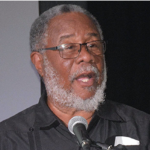It is to be expected that members of a profession would want to be part of an organisation which acts as the professional body for that sector of employees. By extension, the assumption can be made that groups of employees such as media workers, teachers, nurses, doctors, seamen / maritime workers, miners among others, would want to become unionised under a body that can represent their specific and peculiar interests.
It is questionable whether the interest of media workers, like doctors and teachers, can be ably satisfied if they choose to be members of a general workers’ union. It begs the question, whether media workers can win the support of other sectors of the membership of a general workers union, as would be expected, where there is the call for collective protest or strike action in the fight of an industrial relations dispute.
Members of individual trade unions have the expectation that they will have media coverage where the staff of an enterprise is engaged in an industrial dispute with their employer. In fighting their own cause, it is likely that media workers might encounter some challenges, as they may be forced to find other means of bringing public attention to their cause.
It is for this reason that media workers ought to come to grips with the fact that there is room to move beyond the realm of a professional grouping, and focus on broader workers’ issues which would be of immediate concern to them. This includes addressing core economic concerns, such as wages and salaries, fair cost of living increases, pay equity, working conditions such as hours of work, health insurance, pension plans, job security, and intellectual property rights.
In moving to organise themselves, media workers ought to be mindful of the changing nature of the global employment culture, where the trend is to place workers on contract. More so, there is the movement towards engaging freelance journalists and announcers. It comes as no surprise that media employees across the globe have started coming together to unionise their workplaces and negotiate union contracts. This is a positive development inasmuch that as a union, the workers earn themselves a seat at the table in order to negotiate over the future of their workplace.
This is something that is not to be taken lightly by media workers. They should be mindful that negotiating a union contract is a core element of any unionised workplace. Further, as members of a representative body, they earn the right to become part of the collective decision-making process in the workplace. It positions the union to demand the sharing of information by the management, to have regular meetings with management and to organise workplace diversity committees.
The attempts to muzzle freedom of expression should also be of concern to media workers. They ought to be able to fight against any intimidation and restrictions imposed on the media, the harsh penalties that can be meted out to journalists and radio announcers/ broadcasters, television news and programme presenters, and media personnel who engage on social media platforms.
Media personnel should be aware of the existence of the International Federation of Journalists (IFJ), which is the world’s largest organisation of journalists. It represents 600 000 media professionals from 187 trade unions and associations in more than 140 countries. This body which was established in 1926 speaks for journalists within the United Nations system and within the international trade union movement.
The IFJ undertakes to organise collective action to support journalists’ unions in their fight for fair pay, decent working conditions and in defence of their labour rights. It promotes international action to defend press freedom and social justice through strong, free and independent trade unions of journalists. It fights for gender equality in all its structures, policies and programmes. Additionally, it opposes discrimination of all kinds and condemns the use of media as propaganda or to promote intolerance and conflict. Finally, it believes in freedom of political and cultural expression.
In the current climate where the focus is on freelance journalists, it is recommended that careful thought is given to establishing a Freelance Journalists Union. Its aim should be to try and combat injustices in the industry, including that of delinquent payments for services rendered and improved conditions of work.
Dennis De Peiza is a Labour & Employee Relations Consultant with Regional Management Services Inc.
The post Organising Media Workers appeared first on Barbados Today.


